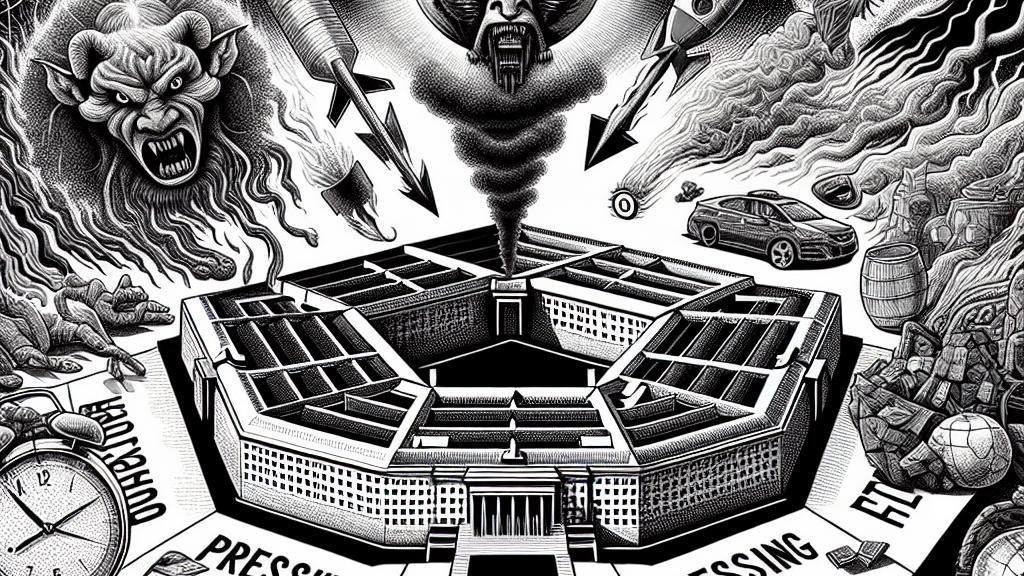Understanding Pentagon's Funding Cuts on Important Research
Overview
- The Pentagon's recent funding cuts threaten critical social science research essential for national security.
- Researchers are expressing deep concerns about the potential fallout from these funding losses.
- Historically, social sciences have played a vital role in informing effective defense strategies.

The Shift in Pentagon Funding
In a startling move, the Pentagon—the heart of national defense in the United States—abruptly decided to discontinue funding for several essential social science research programs when the Trump administration took the reins. One significant victim of this funding cut was the Minerva Initiative, which kicked off in 2008. This initiative aimed to support researchers by enabling them to conduct non-classified studies critical for understanding societal issues and preparing for future challenges. The sudden termination of such financial support has not only sent shockwaves through the academic community but has also raised alarms about the ability to adequately explore pressing threats ranging from violent extremism to misinformation and climate change.
Concerns from the Academic Community
Voices of concern are reverberating across universities. For example, Neil Johnson from George Washington University was engaged in critical research to understand how online interactions influence misinformation—a topic of utmost importance in today’s digital landscape. He expressed disbelief regarding the Pentagon's choice to cut funding for research that could unveil the dynamics of over 50 online platforms. This decision may have dire consequences for national security, as we risk losing insights needed to combat misinformation. Many other researchers from prominent institutions, such as the University of Michigan, share similar fears, worried that the sudden loss of grants threatens their ability to forge ahead with vital projects.
Historical Significance of Social Science
To fully grasp the stakes of this funding cut, it’s essential to reflect on history. The Minerva Initiative was established as a response to the lessons learned from the September 11, 2001 attacks, showcasing a critical moment when it became evident that military solutions alone could not address emerging threats. Scott Atlas, an anthropologist actively involved in the initiative, pointed out that it targeted the vital connection between military strategy and social behavior. His assertion highlights that understanding societal dynamics and integrating social and behavioral sciences could dramatically enhance national security approaches. By terminating this funding, the Pentagon may be consciously sidelining an integral aspect of future defense strategy.
Changing Public Perception on Military Spending
In the midst of these changes, public sentiment around military funding is also evolving. A significant number of Americans are increasingly supportive of redirecting funds away from the Pentagon towards vital community services, including healthcare, education, and job creation. A recent survey noted that 56% of the population favors this shift, reflecting a broader desire for security through community welfare rather than military build-up. People recognize that investing in education and healthcare can create a much stronger safety net than relying on weapons and force. This emerging viewpoint suggests a critical shift in how Americans envision their national security.
The Broader Implications of Funding Cuts
The implications of these funding cuts are staggering and potentially detrimental. Experts argue that this decision transcends mere budget adjustments; it represents a foundational miscalculation in understanding contemporary national security. Former Pentagon officials and leading researchers have repeatedly warned that losing significant funding for social science will hinder the government's effectiveness in addressing everyday threats. Joshua Busby, a prominent climate advisor, encapsulated this concern, stating that failing to support academic research not only jeopardizes our understanding of various societal threats but could erode our overall preparedness for future crises. This alarming loss of funding could usher in a new era of insecurity, where the safety of our communities hangs precariously in the balance.

Loading...